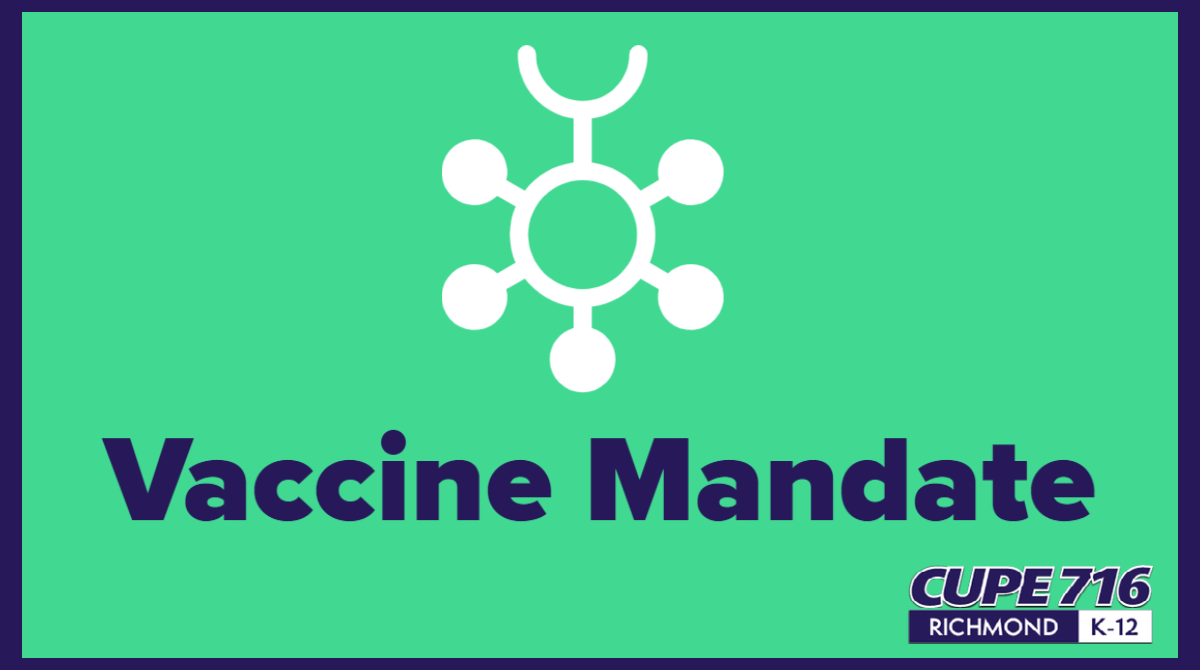There is a great deal of misinformation circulating not only about the science and medicine behind vaccinations, about which I am unqualified to comment, except to say that I have had both shots, but also on questions of what these policies mean for those who refuse vaccination.
To get straight to the point, the question we seem to get more than any on this topic is: “Are there grounds by which I can be exempted from being required to be vaccinated?” This question, however, should have an additional fragment added – “and remain working at the workplace where the vaccination is being mandated.” The answer, by the way, is yes, there are two, but it is unlikely that either would apply to you.
This gets me to my first point: Vaccines are required to continue working for the Employer, but that isn’t the same as being forced to take a vaccine. There is no guarantee to employment in the Canadian Charter of Rights and Freedoms. But all things in life are trade-offs, and risks, since we are all mortal. The Employers are not forcing you to get the vaccine, they’re forcing you, I suppose, to get vaccinated if you wish to continue working for them, since they must, by law, consider the welfare of the collective, and appropriately balance competing rights and interests.
The two grounds by which a person could be exempted from the vaccine and be accommodated are so rare, limited and will affect so few Canadians, that it’s almost not worth thinking about. They are:
- Medical Exemption
- “Creed” / religion protection under the HRC
To obtain a medical exemption, the person has to be at known risk of a severe, high-risk allergic reaction to a component of a vaccine or to inflammation of the heart. Even at that, the College of Physicians and Surgeons has stated that the exemptions will not be given to those who have relatively minor potential adverse reactions, as the risk of the virus has been judged to be worse.
The religious creed prohibited grounds in the Human Rights Code are not something workers can just suddenly claim; they have to be a member of a religion, and prove as much, which has as one of its known and communicated tenets a prohibition on vaccinations. No such religions are known to exist in Canada. Members should be careful about claiming this exemption, as the outcome may be the employer concluding that the member had attempted to fraudulently misrepresent a claim toward an accommodation, which could result in discipline.
Thus you see that the list of grounds by which exemption is possible is basically nil.
The question, then, becomes: “Can I retain my employment if I choose not to get vaccinated.” The short answer is “yes,” but it isn’t entirely clear for how long, and your leave of absence would be without pay or benefits.
Amendments to the Employment Standards Code enacted by the provincial government at the start of the pandemic limit employers from terminating employees on COVID-related leave, and we would certainly argue that this statute enables our members to take a leave of absence without pay for a strong objection to being vaccinated. The Union would do so, I should clarify, because we have a duty to represent all our members, but for clarity, we do not agree that the vaccines are unsafe, and our recommendation is for all our members to follow medical advice, which recommends vaccinations.
However, it’s not clear how long such a leave could be, given that whenever a worker chose to return to work, they would likely still be required to be vaccinated prior to their return to work.
Members are reminded that a leave of absence without pay would mean a loss of pensionable service for the period of the leave, and EHB/LTD/Group Life premiums would need to be borne fully by the member, which, if additional beneficiaries are insured on the plan, with two children and a partner is somewhere between $460 and $650 per month.
Members must also be given a cold shower with respect to their prospect of remaining employed if they continue in their resistance to the vaccine. While the Union can provide you help to arrange for a leave of absence or similar, and continue to advocate for you, we are of the view that Employers will get impatient in time and then their response will become more severe, which may include terminations from employment since Employers have an obligation both in common law and by provincial edict through OHS/WCB schemes, to provide workers with a healthy and safe work environment, let alone the obligation school districts have toward vulnerable and minor children.
I hope the above has been helpful at least in so far as it will allow members not to harbour false hope and know where they stand.
In solidarity,
Dan Todd, CUPE National Representative

